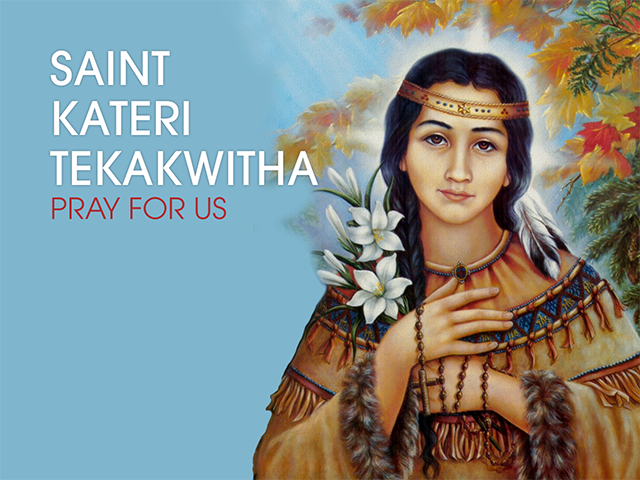



St. Kateri Tekakwitha (1656-1680), also known as the 'Lily of the Mohawks,' was born in present-day New York. Her father was a Mohawk chief, and her mother an Algonquin who had been converted to the Christian faith by Jesuit missionaries. When Kateri was four years old, a smallpox epidemic killed her entire family and left her partially blind, disfigured, and crippled. She was raised by her uncle, who detested the Christians. As she grew up, Kateri longed for the Catholic faith of her mother, and was very drawn to the missionaries evangelizing near her village. At the age of twenty she was baptized with the name Catherine (which was translated as “Kateri”) after St. Catherine of Siena. Her uncle opposed her conversion to Christianity, and as a result she was ostracized by her people and treated harshly. When it was clear that her life was in danger, a priest helped her flee to a French Jesuit mission in Montreal, Canada—a journey of over 200 miles alone and on foot. There she lived a solitary life of prayer and penance, rejecting an opportunity for marriage. Her great sanctity, virtue, and love for Christ amazed everyone who knew her. She was also known as a miracle-worker. Kateri died of illness at the age of twenty-four. She was beatified by Pope St. John Paul II in 1980, and canonized in 2012 by Pope Benedict XVI as the first Native American saint. Kateri is the patron saint of environmentalists, orphans, exiles, and those who are ridiculed for their piety. Her feast day is July 14.